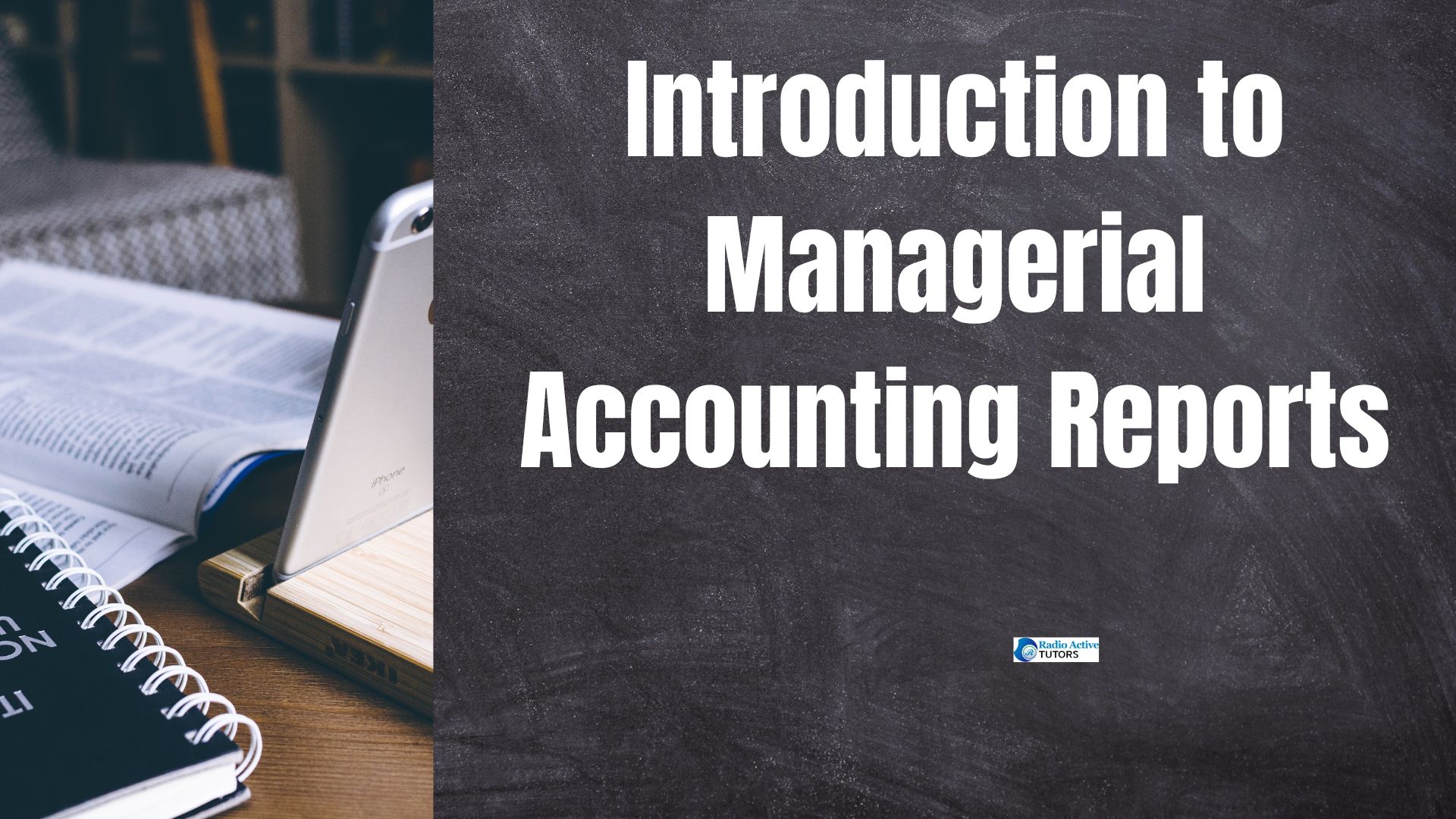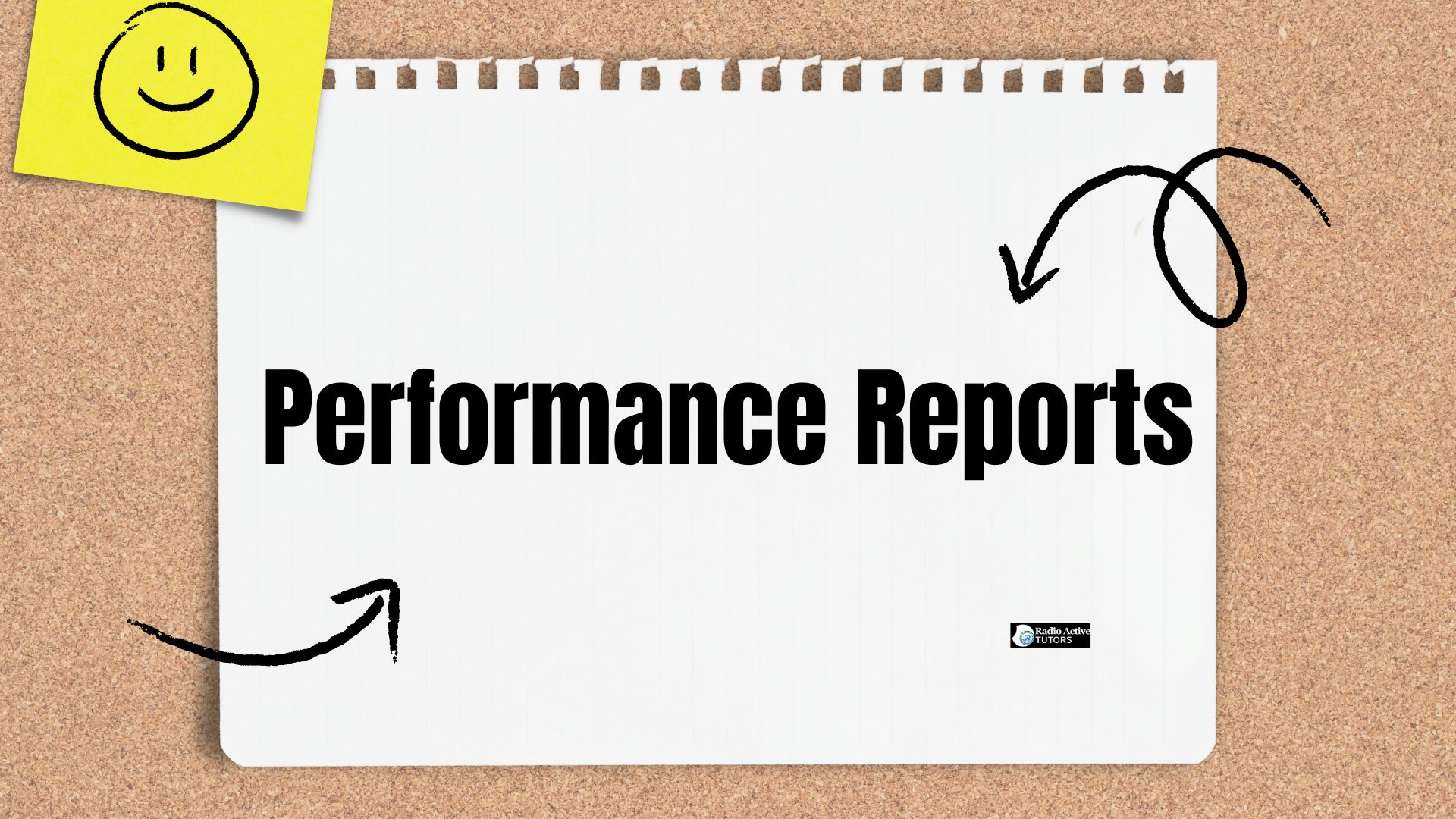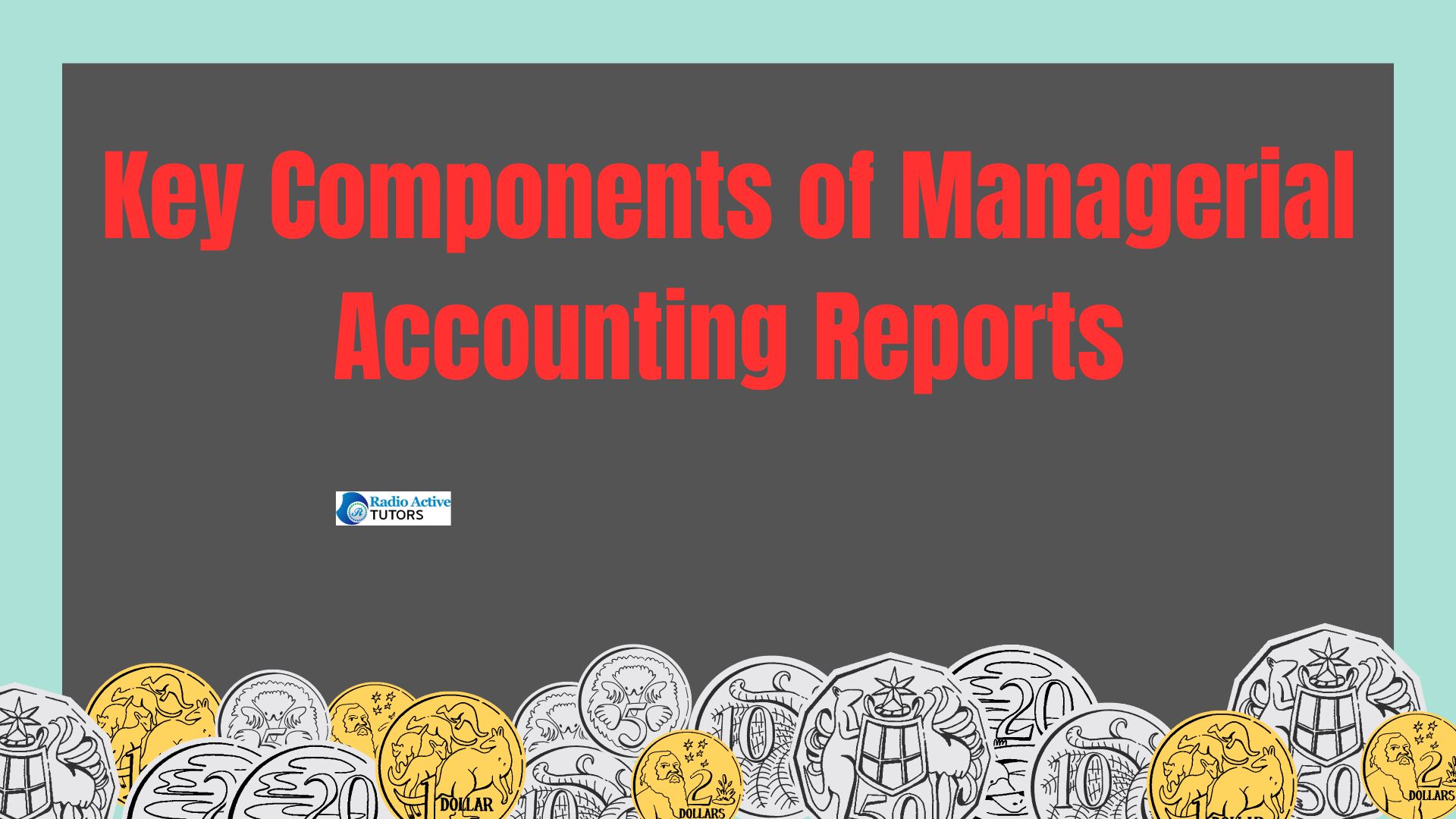Table of Contents
I. Introduction to Managerial Accounting Reports
II. Types of Managerial Accounting Reports
III. Creating Effective Managerial Accounting Reports
IV. Key Components of Managerial Accounting Reports
V. Interpreting Managerial Accounting Reports
VI. Implementing Managerial Accounting Reports in Different Industries
VII. Real-Life Case Studies: Success Stories with Managerial Accounting Reports
VIII. The Role of Managerial Accounting Reports in Strategic Planning
IX. Addressing Common Challenges in Managerial Accounting Reporting
X. FAQs (Frequently Asked Questions)
I. Introduction to Managerial Accounting Reports

- What are Managerial Accounting Reports?
Managerial accounting reports are essential tools used by managers to make informed decisions within an organization. These reports provide detailed financial information tailored to the needs of management, aiding in planning, controlling, and decision-making processes. Unlike financial accounting reports, which are primarily focused on providing information to external stakeholders, managerial accounting reports are internal documents designed to assist managers in assessing the performance of various departments, projects, and activities.
They typically include detailed analyses of costs, budgets, forecasts, and performance metrics, allowing managers to identify trends, allocate resources efficiently, and formulate strategic plans to achieve organizational goals. Overall, managerial accounting reports play a crucial role in helping managers navigate the complexities of business operations and drive sustainable growth.
- Importance of Managerial Accounting Reports in Business Decision-Making
Managerial accounting reports hold immense significance in the realm of business decision-making, serving as indispensable tools for managers at all levels of an organization. These reports offer detailed insights into various aspects of the company’s financial performance, enabling managers to make well-informed decisions that align with the organization’s strategic objectives. By providing comprehensive analyses of costs, revenues, budgets, and performance metrics, managerial accounting reports empower managers to identify strengths, weaknesses, opportunities, and threats within the business environment.
Armed with this valuable information, managers can devise effective strategies to optimize resource allocation, minimize costs, maximize profits, and enhance overall operational efficiency. Ultimately, the importance of managerial accounting reports lies in their ability to facilitate data-driven decision-making, thereby helping businesses adapt to dynamic market conditions and achieve sustainable growth in the long run.
II. Types of Managerial Accounting Reports
Cost accounting reports are a vital component of the array of managerial accounting reports available to businesses. These reports focus specifically on the analysis and tracking of costs associated with producing goods or delivering services within an organization. By meticulously examining various cost elements such as direct materials, labor, and overhead expenses, cost accounting reports provide managers with invaluable insights into the cost structure of the company’s operations.
This detailed understanding enables managers to make informed decisions regarding pricing strategies, production planning, budgeting, and cost control measures. Ultimately, cost accounting reports play a crucial role in helping businesses enhance profitability, optimize resource utilization, and maintain competitiveness in the marketplace.
Budgeting reports represent a cornerstone of managerial accounting reports, offering crucial insights into the financial planning and control processes of an organization. These reports outline the planned revenues, expenses, and resource allocations for specific periods, providing managers with a roadmap for achieving organizational goals. Budgeting reports enable managers to compare actual financial performance against predetermined targets, identify variances, and take corrective actions as needed.
By facilitating effective resource allocation and expenditure monitoring, budgeting reports empower managers to make informed decisions that align with the company’s strategic objectives. Moreover, these reports foster accountability and transparency within the organization, fostering a culture of financial discipline and efficiency. Overall, budgeting reports play a vital role in guiding managerial decision-making processes and ensuring the financial health and sustainability of the business.

Performance reports stand as pivotal components within the spectrum of managerial accounting reports, providing managers with comprehensive insights into the operational efficiency and effectiveness of various facets of the organization. These reports meticulously analyze key performance indicators (KPIs) and metrics across departments, projects, or activities, allowing managers to assess progress towards predetermined goals and objectives.
By presenting both quantitative and qualitative data regarding productivity, profitability, quality, and customer satisfaction, performance reports enable managers to pinpoint areas of strength and areas needing improvement. Armed with this information, managers can implement strategic initiatives, allocate resources optimally, and streamline processes to enhance overall performance and drive organizational success. Ultimately, performance reports serve as invaluable tools for managers to monitor, evaluate, and continuously improve the performance of their teams and the organization as a whole.
III. Creating Effective Managerial Accounting Reports
- Designing Customized Reports for Different Business Needs
Designing customized reports tailored to diverse business needs is a cornerstone of creating effective managerial accounting reports. Recognizing that different departments, projects, or decision-makers may require specific insights, these customized reports are meticulously crafted to deliver the most relevant and actionable information. By collaborating closely with stakeholders to understand their unique requirements and objectives, accounting professionals can design reports that address specific questions, challenges, or opportunities faced by the organization.
Whether it’s detailed cost analyses for production departments, revenue forecasts for sales teams, or variance reports for budget control, customized reports ensure that managers receive timely and accurate information to support informed decision-making. Moreover, the flexibility to adapt report formats, metrics, and visualizations allows for seamless communication and alignment across various levels of the organization, fostering a culture of data-driven decision-making and driving sustained business growth.
- Utilizing Software and Technology for Report Generation
Utilizing software and technology for report generation is instrumental in creating effective managerial accounting reports that meet the evolving needs of modern businesses. Today’s advanced accounting software offers a myriad of features and functionalities designed to streamline the report generation process, enhance accuracy, and improve efficiency. These tools automate data collection, analysis, and visualization, allowing accounting professionals to generate comprehensive reports in a fraction of the time it would take manually.
Moreover, the integration of cloud-based platforms and data analytics tools enables real-time access to financial information from anywhere, facilitating timely decision-making. By harnessing the power of software and technology, organizations can leverage sophisticated algorithms and predictive analytics to uncover valuable insights, identify trends, and forecast future performance accurately. Ultimately, the adoption of cutting-edge technology not only enhances the quality and reliability of managerial accounting reports but also empowers businesses to stay agile, competitive, and resilient in today’s dynamic marketplace.
- Importance of Timeliness and Accuracy in Reporting
The importance of timeliness and accuracy in reporting cannot be overstated when creating effective managerial accounting reports. Timely reports ensure that managers have access to up-to-date financial information, enabling them to make informed decisions promptly. In a fast-paced business environment, delays in reporting can lead to missed opportunities or reactive decision-making, potentially impacting the organization’s performance and competitiveness.
Furthermore, accuracy is paramount to the credibility and reliability of managerial accounting reports. Inaccurate data can result in flawed analysis, misguided decisions, and ultimately, financial losses. By prioritizing timeliness and accuracy in reporting, accounting professionals uphold the integrity of financial information, instill confidence in managerial decision-making, and contribute to the overall success and sustainability of the organization.
IV. Key Components of Managerial Accounting Reports

- Revenue and Sales Analysis
Revenue and sales analysis stands as a pivotal component within the realm of managerial accounting reports, offering invaluable insights into the financial health and performance of an organization. These reports meticulously examine revenue streams, sales trends, and customer behaviors to provide managers with a comprehensive understanding of the factors driving revenue generation. By analyzing sales data by product, customer segment, geographic region, or sales channel, managers can identify top-performing products or markets, as well as areas for improvement or expansion.
Moreover, revenue and sales analysis facilitates strategic decision-making regarding pricing strategies, sales forecasts, inventory management, and resource allocation. Armed with this insightful information, managers can devise targeted marketing campaigns, optimize sales processes, and capitalize on emerging opportunities to drive sustainable growth and profitability for the organization.
- Cost Analysis and Cost Behavior
Cost analysis and cost behavior represent fundamental components within the domain of managerial accounting reports, providing managers with critical insights into the cost structure and financial performance of the organization. These reports meticulously dissect various cost elements, such as direct materials, labor, and overhead expenses, to assess their impact on the overall profitability of the business. By analyzing cost behavior, managers can discern how costs change in response to fluctuations in production levels, sales volumes, or other operational factors. This understanding enables managers to make informed decisions regarding pricing strategies, production planning, budgeting, and cost control measures.
Moreover, cost analysis helps identify cost-saving opportunities, inefficiencies, and areas for improvement, allowing managers to implement corrective actions and optimize resource utilization. Ultimately, by integrating cost analysis and cost behavior insights into managerial accounting reports, managers can enhance operational efficiency, minimize expenses, and drive sustainable financial performance for the organization.
Profitability analysis serves as a cornerstone within the array of key components of managerial accounting reports, offering invaluable insights into the financial performance and sustainability of an organization. These reports meticulously examine the profitability of products, services, customers, or business segments, providing managers with a comprehensive understanding of revenue generation and cost allocation.
By analyzing profitability metrics such as gross profit margins, contribution margins, and return on investment (ROI), managers can identify the most profitable aspects of the business and allocate resources accordingly. Moreover, profitability analysis enables managers to evaluate the effectiveness of pricing strategies, product mix decisions, and marketing initiatives, empowering them to make data-driven decisions that maximize profitability and shareholder value. Armed with this insightful information, managers can strategically steer the organization towards sustained growth, competitive advantage, and long-term financial success.
Cash flow analysis stands as a critical component within the realm of managerial accounting reports, offering essential insights into the liquidity and financial health of an organization. These reports meticulously examine the inflow and outflow of cash over a specified period, providing managers with a comprehensive understanding of the organization’s ability to meet its short-term financial obligations and fund its operations. By analyzing cash flow patterns, managers can identify trends, anticipate cash shortages or surpluses, and make informed decisions regarding working capital management, capital expenditures, and financing activities.
Moreover, cash flow analysis enables managers to assess the organization’s financial flexibility, evaluate investment opportunities, and mitigate liquidity risks effectively. Armed with this insightful information, managers can implement strategies to optimize cash flow, maintain financial stability, and support sustainable growth for the organization in the long run.
V. Interpreting Managerial Accounting Reports
- Identifying Trends and Patterns

Identifying trends and patterns is a crucial aspect of interpreting managerial accounting reports, as it allows managers to extract meaningful insights from the data presented. These reports provide a wealth of financial information that, when analyzed systematically, can reveal recurring patterns, emerging trends, and areas of opportunity or concern within the organization. By identifying trends in revenue growth, cost fluctuations, or operational performance over time, managers can gain a deeper understanding of the factors driving the organization’s financial performance.
Moreover, recognizing patterns in customer behavior, market dynamics, or industry trends enables managers to anticipate changes and proactively adjust strategies to capitalize on opportunities or mitigate risks. Through careful interpretation of managerial accounting reports and the identification of trends and patterns, managers can make informed decisions that steer the organization towards sustained success and competitive advantage in a dynamic business environment.
- Making Informed Business Decisions Based on Report Analysis
Making informed business decisions based on report analysis is paramount in interpreting managerial accounting reports effectively. These reports provide managers with a wealth of financial data and insights that serve as the foundation for strategic decision-making. By thoroughly analyzing the information presented in the reports, managers can identify trends, patterns, and key performance indicators that inform their understanding of the organization’s financial health and performance.
Armed with this knowledge, managers can evaluate various alternatives, assess risks, and weigh potential outcomes to make sound, data-driven decisions that align with the organization’s goals and objectives. Whether it involves pricing strategies, resource allocation, investment decisions, or operational improvements, leveraging the insights gleaned from managerial accounting reports empowers managers to navigate complexities, capitalize on opportunities, and mitigate challenges effectively, ultimately driving sustainable growth and success for the organization.
- Common Pitfalls in Interpretation and How to Avoid Them
In interpreting managerial accounting reports, it’s essential to be aware of common pitfalls that can lead to misinterpretation or erroneous decision-making. One common pitfall is focusing solely on individual metrics without considering their interdependencies or broader context. To avoid this, managers should adopt a holistic approach, examining multiple metrics and analyzing how they relate to one another and to overall organizational goals. Another pitfall is relying too heavily on historical data without considering future projections or market dynamics. Managers can mitigate this risk by incorporating forward-looking analyses and scenario planning into their interpretation process.
Additionally, confirmation bias, where managers interpret data to confirm preconceived notions or biases, can skew interpretations. Guarding against confirmation bias requires maintaining objectivity and considering alternative perspectives. Finally, overlooking qualitative factors such as customer feedback, employee morale, or industry trends can limit the depth of analysis. Managers should ensure they incorporate qualitative insights alongside quantitative data to gain a comprehensive understanding of the organization’s performance. By avoiding these common pitfalls and employing a rigorous and balanced approach to interpretation, managers can derive meaningful insights from managerial accounting reports and make informed decisions that drive organizational success.
VI. Implementing Managerial Accounting Reports in Different Industries
Implementing managerial accounting reports across different industries is a versatile and essential practice that aids organizations in optimizing performance and achieving strategic objectives. Whether in manufacturing, healthcare, retail, or service sectors, the principles of managerial accounting remain applicable and adaptable. In manufacturing industries, managerial accounting reports help track production costs, optimize inventory levels, and enhance operational efficiency. In healthcare, these reports aid in monitoring costs, improving resource allocation, and enhancing patient care delivery.
Retail industries utilize managerial accounting reports to analyze sales performance, manage inventory, and optimize pricing strategies. In the service sector, these reports assist in monitoring project profitability, allocating resources effectively, and improving service quality. Regardless of the industry, implementing managerial accounting reports provides organizations with valuable insights to make informed decisions, streamline processes, and drive sustainable growth.
VII. Real-Life Case Studies: Success Stories with Managerial Accounting Reports
Real-life case studies showcase the tangible benefits and success stories associated with implementing managerial accounting reports across various industries. One such example is a manufacturing company that utilized managerial accounting reports to identify inefficiencies in its production process, leading to significant cost savings and improved productivity. Another success story involves a retail chain that leveraged these reports to optimize inventory levels, reduce stockouts, and enhance customer satisfaction. In the healthcare sector, a hospital utilized managerial accounting reports to streamline resource allocation, resulting in improved patient care outcomes and cost savings.
These real-life examples demonstrate how organizations can harness the power of managerial accounting reports to drive strategic decision-making, improve operational efficiency, and achieve sustainable growth in today’s competitive business landscape.
VIII. The Role of Managerial Accounting Reports in Strategic Planning
- Aligning Financial Goals with Business Objectives

The role of managerial accounting reports in strategic planning extends to aligning financial goals with broader business objectives. These reports serve as invaluable tools for managers to assess the financial implications of strategic initiatives and ensure that they are in line with the organization’s overarching goals. By providing detailed insights into costs, revenues, and profitability metrics, managerial accounting reports enable managers to evaluate the financial feasibility and potential impact of various strategic options.
Whether it involves expanding into new markets, investing in technology, or launching new product lines, managers can rely on these reports to make informed decisions that support the organization’s long-term growth and sustainability. By aligning financial goals with business objectives through the strategic use of managerial accounting reports, organizations can effectively allocate resources, mitigate risks, and capitalize on opportunities to achieve strategic success.
- Forecasting Future Performance Based on Historical Data
The role of managerial accounting reports in strategic planning encompasses forecasting future performance based on historical data, providing managers with valuable insights to guide decision-making. By analyzing past financial performance, managers can identify trends, patterns, and key drivers that inform projections for the future. Managerial accounting reports enable managers to forecast revenues, expenses, and cash flows, facilitating the development of realistic budgets and financial plans.
Moreover, by leveraging forecasting models and predictive analytics, managers can anticipate potential opportunities and challenges, allowing them to proactively adjust strategies and allocate resources effectively. By integrating historical data analysis and forecasting techniques into strategic planning processes, organizations can enhance their ability to anticipate market trends, adapt to changing conditions, and achieve sustainable growth in today’s dynamic business environment.
IX. Addressing Common Challenges in Managerial Accounting Reporting
Addressing common challenges in managerial accounting reporting is essential to ensure the accuracy and effectiveness of financial decision-making within an organization. One prevalent challenge is the complexity of data collection and analysis, which can lead to errors or delays in reporting. Implementing streamlined processes and leveraging technology solutions can help mitigate this challenge by automating data collection and standardizing reporting formats. Another challenge is maintaining relevance and timeliness in reporting, particularly in rapidly evolving business environments. Regular review and updates to reporting frameworks, coupled with proactive communication between accounting teams and management, can help address this challenge and ensure that reports remain timely and actionable.
Additionally, ensuring data integrity and confidentiality poses a persistent challenge, given the sensitivity of financial information. Implementing robust security measures and establishing clear protocols for data access and sharing can help mitigate risks and maintain data integrity. By proactively addressing these common challenges, organizations can enhance the reliability and value of managerial accounting reporting, enabling informed decision-making and driving sustainable business growth.
X. FAQs (Frequently Asked Questions)
- What is the difference between managerial accounting and financial accounting?
- How often should managerial accounting reports be generated?
- Can small businesses benefit from managerial accounting reports?
- What are the main challenges businesses face in implementing managerial accounting reports?
- How can managerial accounting reports help in cost reduction strategies?
- Are there any industry-specific considerations when designing managerial accounting reports?
- How do managerial accounting reports contribute to strategic decision-making?
- What role does technology play in modern managerial accounting reporting?
- How can businesses ensure the accuracy and reliability of managerial accounting data?
- What are some best practices for interpreting managerial accounting reports effectively?
